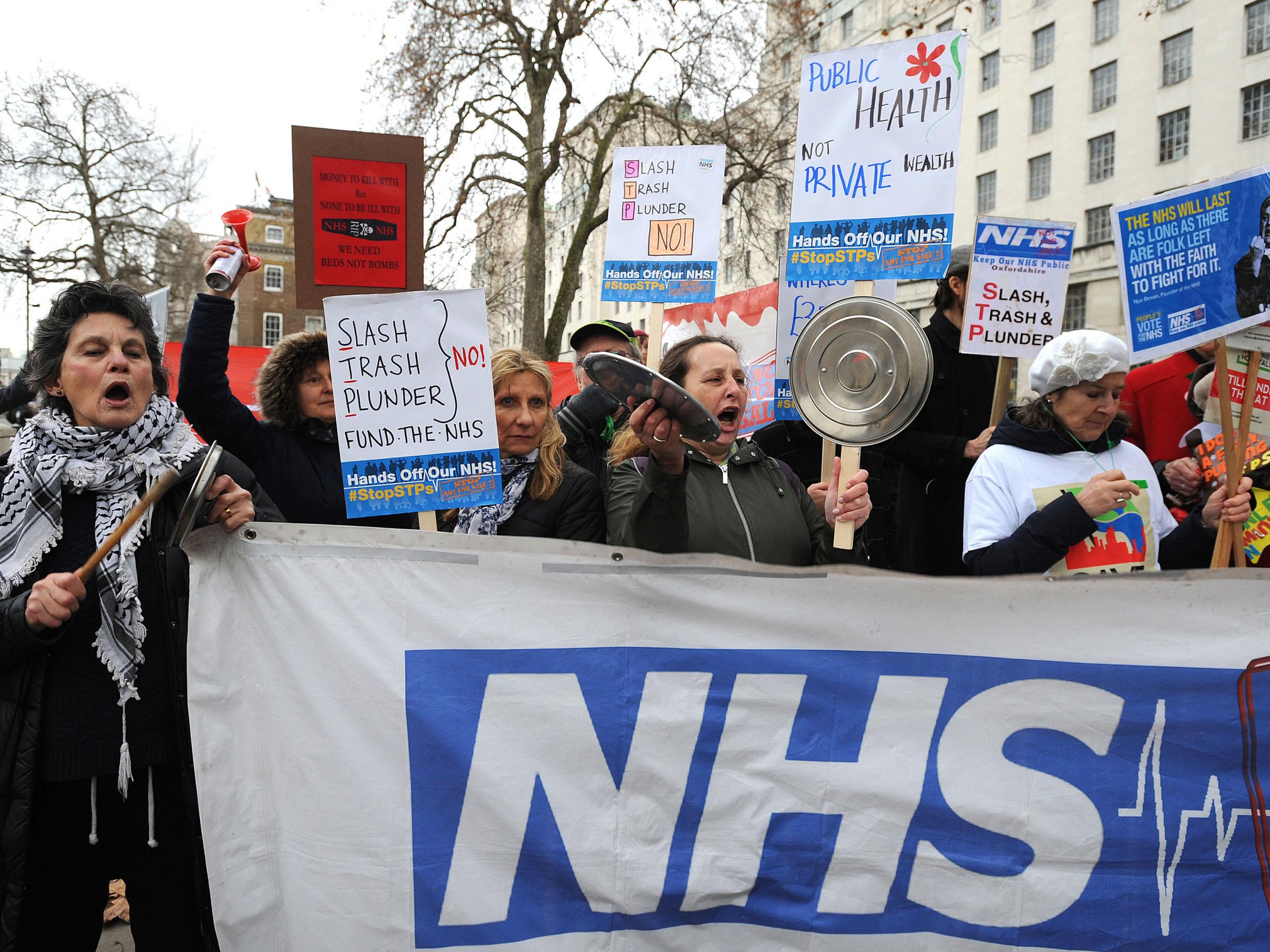The NHS does need to evolve – but we shouldn't accept the argument that the Government can't do more
While modernisation – and in some areas streamlining – of services is necessary, it is important that NHS chief Simon Stevens’s decision to row back target times for non-emergency operations does not become something of a trend

The most egregious of all the lies promulgated by Leave campaigners before last year’s referendum was the claim that withdrawal from the EU would mean that Britain could spend an extra £350m per week on the NHS. It was poppycock, of course. Nevertheless, it demonstrated the degree to which the NHS is still a totemic electoral issue – and it highlighted the undeniable point that the service is under huge strain.
Friday’s announcement by NHS chief executive, Simon Stevens, of longer waiting times for non-urgent operations is proof that the strain can be borne no longer at current funding levels. In order to make improvements in key areas including A&E and mental health provision, increasing numbers of patients in need of knee and hip replacements, for instance, will not go under the knife within the 18-week target.
On the face of it, this may seem like an acceptable trade-off. It has been painfully obvious this winter that accident and emergency services are flailing, with patients queuing on ambulance gurneys and staff pushed to breaking point. Mental health provision has also come under the microscope, with many areas lacking the capacity to cope. Some patients have been dispatched more than 150 miles from their homes for treatment as a result, which is plainly not conducive to their recovery – nor, it must be said, is it cost-effective.
Furthermore, as Mr Stevens himself has been quick to emphasise, the waiting times experienced by those requiring non-urgent, surgical intervention have massively improved over the past 20 years. As recently as 2000, patients were frequently forced to wait more than a year for operations. The reality is that hospitals are already missing the 92 per cent target for treatment within 18 weeks and there is therefore arguably some sense in taking a pragmatic approach when it comes to removing the threat of sanctions for those trusts which don’t reach the pass mark.
Of course it is not only elective operations that are the focus of cost savings. It has already been announced this week that the NHS will end prescriptions for gluten-free food products, sunscreen and easily available painkillers such as paracetamol. And fundamentally, the changing needs of a growing and ageing population mean that the NHS must evolve. We cannot expect it to be all things to all people for all time.
Nevertheless, while modernisation – and in some areas streamlining – of services is necessary, it is important that Mr Stevens’s decision to row back target times for non-emergency operations does not become something of a trend. For while a patient requiring non-urgent treatment may not be in mortal danger if forced to wait a little longer, the chances are they are in considerable pain. That pain may worsen as time goes by; the patient’s mental wellbeing may suffer too. And if they subsequently find, for instance, that they cannot work, or drive, or walk, then the knock-on consequences of delaying surgery become significant. There may even be increased costs to the NHS as a result. It is eminently likely that some patients will seek solace in the private sector, which will raise further questions about a two-tier health service.
What’s more, we should be wary of accepting the argument that the Government cannot do more to fund the NHS. It has already been clearly demonstrated that the Prime Minister’s claim of an extra £10bn a year on health spending is wrong. There remain serious concerns that existing funding levels will be insufficient, even when recently instituted efficiencies and other savings are taking into account. The Chancellor may be resistant to raising borrowing levels but he shouldn’t rule the option out simply on principle.
The NHS remains a remarkable institution and its core values are still intact more than 70 years after its establishment. Of course it must adapt to changing circumstances – but it must not be permitted to wither, even if there isn’t £350m a week to look forward to.

Join our commenting forum
Join thought-provoking conversations, follow other Independent readers and see their replies